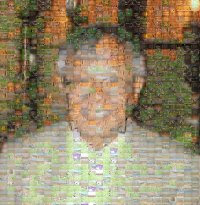
Thursday, April 29, 2010
More Games

Saturday, April 24, 2010
A Simple Game
Scissor:
Cloth can cover rock, rock can break scissor, scissor, of course, can cut cloth. The cyclic functions of these gestures make the game fair. One of the two people can decide who goes first, or who win, by calling out together “one, two, three”, followed immediately by displaying one of these three gestures. One of the two will win, or both have the same gesture, you just repeat again until one wins. Try this with a Chinese, he or she will be surprised that you know this game.
Wednesday, April 21, 2010
Chinese Civil War
The Chinese Civil War (内战) was fought between the Kuomintang (KMT or Chinese Nationalist Party) and the Communist Party of China (CPC). It started as early as 1927. The war was fought off and on during the eight-year Japanese Invasion of China. After the war, this civil war started to heat up. The CPC was able to capture a large number of weapons abandoned by the Japanese in the Manchu area, including some tanks. But it was not until large numbers of well trained KMT troops surrendered, and joined the communist forces, that the CPC was finally able to master the hardware. However, despite the disadvantage in military hardware, the CPC's ultimate trump card was its land reform policy. This policy helped the CPC establish a stronghold in Manchuria (the northeast corner of China), which eventually overwhelmed the KMT and forced them to retreat to Taiwan.
We (Dean and I) were in heaven in those years after the war, as we attended our first few years of school in a very "normal" setting. We had candies after school, boiled eggs at lunch time, and chicken for dinner. And we played games and had some toys. Certainly we had a lot of fireworks during holidays. I was very good at lighting the fireworks, I remember. Once my Father's younger sister came to visit us from Hubei for a few days. She (Gu-gu, 姑姑) gave me some change every morning, and it all went to fireworks! The civil war was certainly not on our minds.
At the beginning, only once in a while, one or two people would come to our door asking for food. Then gradually in 1948, we saw a whole family, with children our age, come to knock on the door every evening for our left-over's. Mom told us to leave something in the pots every night at dinner for the beggars. She also asked me not to touch them when I poured the food into their containers, as they might transfer some disease to me. We started to recognize the children in these families. That was the evidence of the seriousness of the civil war. That was certainly the reason why the KMT eventually failed. The society was just not fair to the poor people. And there were just too many poor people!! That was the first time that I recognized those facts.
Friday, April 16, 2010
Another Event!
Another event I remember that happened in Nanking was a scary one. It also involved Dean!
Our new compound was still being developed and more new houses were being built behind our house; our building was on the first row. There was quite a bit of space in front of the house, which was intended for public use, and a small pond was on the left side of the empty space. We used the pond for catching frogs, and other bugs. One winter, it was frozen solid – or so we thought. Both Dean and I joined a group of kids playing on the ice. We ran from the shore, and as soon as we touched the ice we would slide on the ice as far as we could. Sometimes, we could slide all the way across the whole pond to the other side. It was so much fun that we did not realize the ice was becoming softer as the day went by. To make the story shorter, one day when we did not pay attention the ice cracked and Dean fell into the lake. On that day, I was there on the ice trying to pull him out. I do not remember how I got him out from the pond. I do remember that he and I were totally soaked with water, and we had to go back to the house to change.
Recently Dean and I had a chance to talk about our past; this event came up simultaneously in our discussion. So it is on his mind as well.
Monday, April 12, 2010
Adults should pay attention
When we first moved into our new house in Nanking, in 1945, my parents were very happy and proud that we had a new place in this building, specifically designed for us and provided totally free from the government. (Our home was provided because my Father was working as chief accountant for the government by that time. The house and a car and driver were provided.) My parents got Dean and me together, maybe several times, to tell us to pay attention. They said, "You children must pay attention, this is a new house, do not write or paint anything on the wall". I do not remember how many days later, they found on the new wall that someone had written "adults should pay attention too" (大人要小心)。 Dean was four then, and had just learned how to write a few words. Both of our parents were furious, it did not take very long for Dean to admit that he did it. I do not remember specifically what did they do to punish Dean, maybe standing in front of the wall for a long time with his nose close to the writings. I just remember thinking that writing on the wall was not a good idea. It was very serious!


















